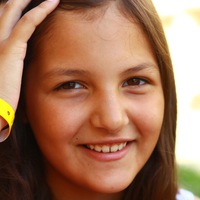
What types of nouns do you know
 0
0
 0
0
Ответы на вопрос
 Внимание! Ответы на вопросы дают живые люди. Они могут содержать ошибочную информацию, заблуждения, а также ответы могут быть сгенерированы нейросетями. Будьте внимательны. Если вы уверены, что ответ неверный, нажмите кнопку "Пожаловаться" под ответом.
Внимание! Ответы на вопросы дают живые люди. Они могут содержать ошибочную информацию, заблуждения, а также ответы могут быть сгенерированы нейросетями. Будьте внимательны. Если вы уверены, что ответ неверный, нажмите кнопку "Пожаловаться" под ответом.

Answer:
Wat noun? There so many nouns
 0
0
 0
0

Ответ:
.............................

 0
0
 0
0

I know a wide range of types of nouns, including:
Common Nouns: These are general nouns that refer to people, places, things, or ideas in a non-specific way. For example, "dog," "city," or "book."
Proper Nouns: These are specific nouns that refer to particular individuals, places, or things and are usually capitalized. For example, "John," "Paris," or "The Mona Lisa."
Concrete Nouns: These nouns refer to physical objects that can be perceived by the five senses. Examples include "tree," "apple," or "car."
Abstract Nouns: These nouns refer to concepts, ideas, emotions, or qualities that cannot be perceived by the senses. Examples include "love," "happiness," or "freedom."
Countable Nouns: These nouns can be counted as discrete units. For example, "apple" can be counted as one apple, two apples, and so on.
Uncountable (Mass) Nouns: These nouns represent substances, concepts, or things that cannot be counted as discrete units. Examples include "water," "advice," or "furniture."
Collective Nouns: These nouns refer to a group or collection of individuals or things as a single entity. Examples include "team," "herd," or "family."
Compound Nouns: These nouns are formed by combining two or more words to create a single noun. Examples include "toothbrush," "mother-in-law," or "ice cream."
Possessive Nouns: These nouns show ownership or possession. They are often formed by adding an apostrophe and an "s" to a noun, such as "John's car."
Plural Nouns: These nouns indicate more than one of a particular thing. They are often formed by adding "-s" or "-es" to the singular form, like "cats" or "houses."
Singular Nouns: These nouns refer to just one individual or thing, such as "cat" or "house."
Compound Proper Nouns: These are specific names made up of multiple words, such as "New York City" or "United Nations."
Gerund Nouns: These are verbs that function as nouns when they end in "-ing." For example, "swimming" can be both a verb (She is swimming) and a noun (Swimming is fun).
Cognate Nouns: These nouns share a common origin with a related word in another language. For example, "nation" and "nación" (Spanish) are cognate nouns.
Material Nouns: These nouns refer to the substance or material something is made of, like "wood" or "metal."
Compound Gerunds: These are nouns formed by combining a gerund with another word, such as "swimming pool."
Appositive Nouns: These are nouns placed next to another noun to provide additional information or clarification. For instance, "My friend Jane is coming over." Here, "Jane" is an appositive noun.
These are some of the common types of nouns, but there are many more specific categories and variations within the language. Nouns are an essential part of language and play a fundamental role in communication.
 0
0
 0
0
Похожие вопросы
Топ вопросов за вчера в категории Английский язык
Последние заданные вопросы в категории Английский язык
-
Математика
-
Литература
-
Алгебра
-
Русский язык
-
Геометрия
-
Английский язык
-
Химия
-
Физика
-
Биология
-
Другие предметы
-
История
-
Обществознание
-
Окружающий мир
-
География
-
Українська мова
-
Информатика
-
Українська література
-
Қазақ тiлi
-
Экономика
-
Музыка
-
Право
-
Беларуская мова
-
Французский язык
-
Немецкий язык
-
МХК
-
ОБЖ
-
Психология
-
Физкультура и спорт
-
Астрономия
-
Кыргыз тили
-
Оʻzbek tili

























